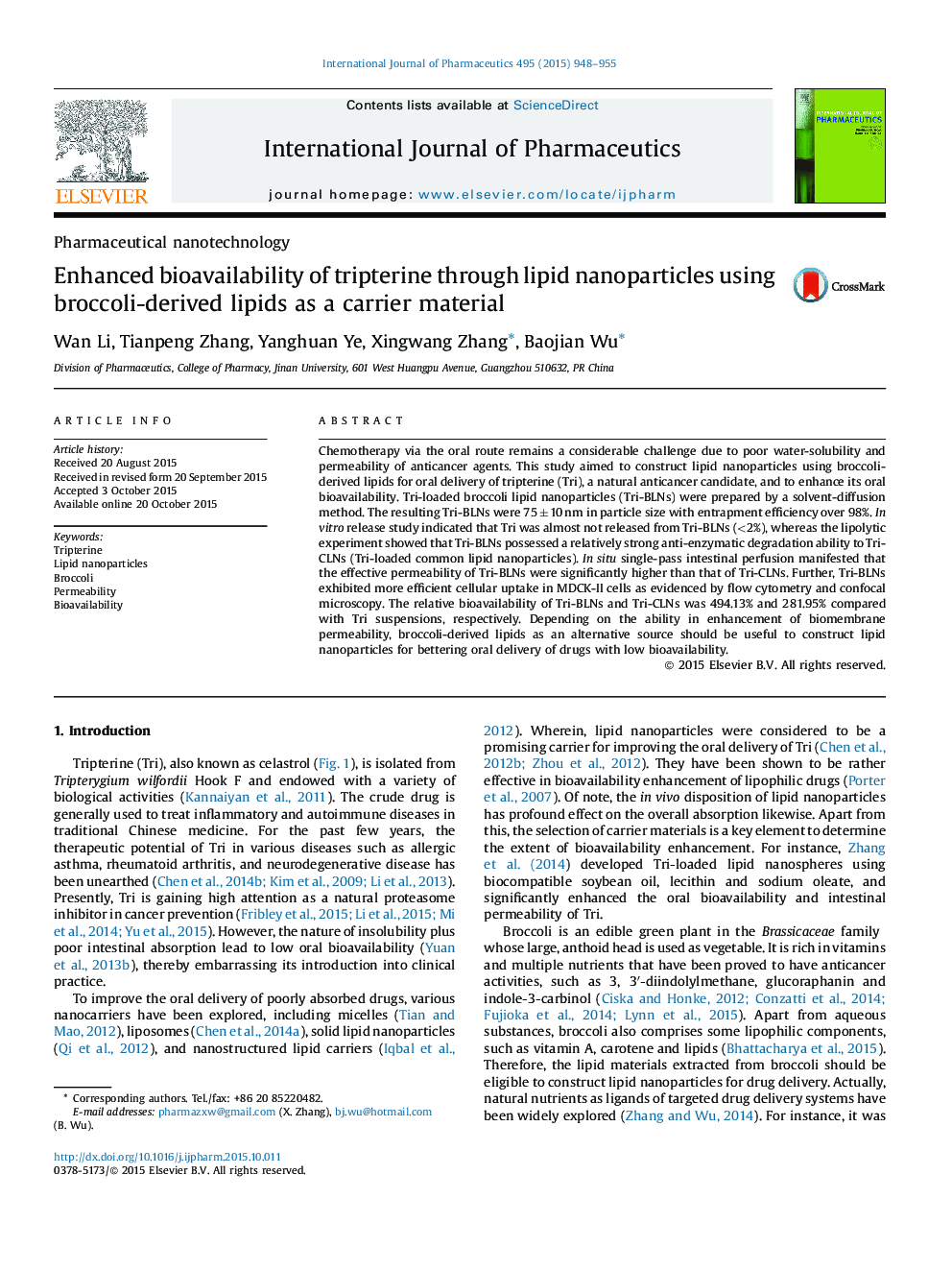| Article ID | Journal | Published Year | Pages | File Type |
|---|---|---|---|---|
| 2501224 | International Journal of Pharmaceutics | 2015 | 8 Pages |
Chemotherapy via the oral route remains a considerable challenge due to poor water-solubility and permeability of anticancer agents. This study aimed to construct lipid nanoparticles using broccoli-derived lipids for oral delivery of tripterine (Tri), a natural anticancer candidate, and to enhance its oral bioavailability. Tri-loaded broccoli lipid nanoparticles (Tri-BLNs) were prepared by a solvent-diffusion method. The resulting Tri-BLNs were 75 ± 10 nm in particle size with entrapment efficiency over 98%. In vitro release study indicated that Tri was almost not released from Tri-BLNs (<2%), whereas the lipolytic experiment showed that Tri-BLNs possessed a relatively strong anti-enzymatic degradation ability to Tri-CLNs (Tri-loaded common lipid nanoparticles). In situ single-pass intestinal perfusion manifested that the effective permeability of Tri-BLNs were significantly higher than that of Tri-CLNs. Further, Tri-BLNs exhibited more efficient cellular uptake in MDCK-II cells as evidenced by flow cytometry and confocal microscopy. The relative bioavailability of Tri-BLNs and Tri-CLNs was 494.13% and 281.95% compared with Tri suspensions, respectively. Depending on the ability in enhancement of biomembrane permeability, broccoli-derived lipids as an alternative source should be useful to construct lipid nanoparticles for bettering oral delivery of drugs with low bioavailability.
Graphical abstractFigure optionsDownload full-size imageDownload high-quality image (133 K)Download as PowerPoint slide
